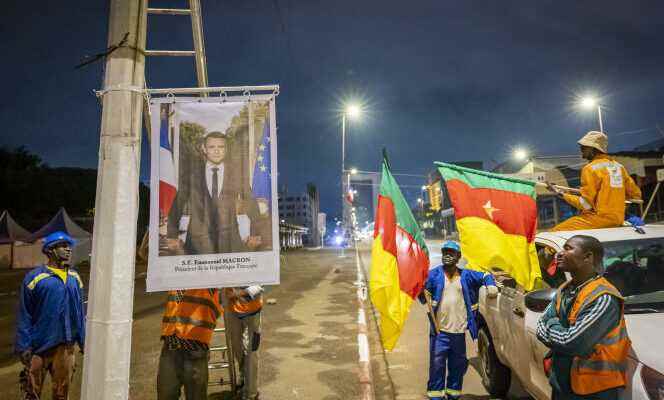For the first African tour of Emmanuel Macron’s second term, the Elysée had for a time envisaged a visit to Zambia, an unexpected stopover inspired, it is said in the presidential entourage, by “the strong impression” left by its president, Hakainde Hichilema, during their meeting in February in Brussels, at the African Union-European Union summit. Nothing will happen.
Rather than a newly elected president, who is planning, in the midst of war in Ukraine, to use his country’s agricultural production to counterbalance the grain shortage and alleviate the resulting food insecurity, Mr. Macron has finally decided on a more “classic” trip from July 25 to 28 to Cameroon, Benin and Guinea-Bissau. “The choice of the three countries visited reflects both a desire for continuity in substance, but also for deepening partnerships”we explain at the Elysée.
“A political priority”
After having sought in vain to mediate in the conflict between Russia and Ukraine, in the midst of the French presidency of the European Union in the first half of the year, the Head of State intends to signify, from the start of his second five-year term, that the ” renewal “ relations between Paris and African capitals remain “a political priority”, en spite of the forced withdrawal of French troops from Mali and the de facto rivalry with Moscow in part of the continent.
In 2017, the context was very different. Barely elected, Emmanuel Macron had made his first trip to the continent to Gao, Mali, to support the soldiers of the anti-terrorist operation “Barkhane” and scold the then president, Ibrahim Boubacar Keïta (“IBK”) , whom he considered too indecisive in the fight against the jihadists and the stabilization of this failed state. Since then, IBK was overthrown by putschists in August 2020, before dying less than two years later.
Today, France is forced into a somewhat glorious military withdrawal from the country, scheduled to be completed by the end of the summer, after the intrusion of Wagner’s Russian mercenaries, who support the junta. And his influence on the continent has never been subject to such questioning in the streets of French-speaking Africa. “Our objective is not to be less present in the Sahel as in Africa, on the contrary, now explains the presidency, but we will have to learn to see ourselves differently and to be seen differently. »
This movement in “areas of strategic interest” is therefore a way of not losing more ground: Cameroon and Benin are two French-speaking African countries which, for different reasons, hold a special place in Franco-African relations. But they are also two authoritarian regimes, one in the twilight, the other under construction, at a time when democratic principles are being called into question everywhere on the continent.
You have 70.4% of this article left to read. The following is for subscribers only.
